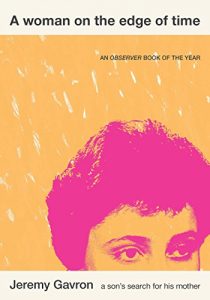It's 1965, and in Primrose Hill, north London, a beautiful young woman has just gassed herself to death, leaving behind a suicide note, two small children, and an about-to-be-published manuscript: The Captive Wife.
Like Sylvia Plath, who died in eerily similar circumstances two years earlier just two streets away, Hannah Gavron was a writer. But no-one had ever imagined that she might take her own life. Bright, sophisticated, and swept up in the progressive politics of the 1960s, Hannah was a promising academic and the wife of a rising entrepreneur. Surrounded by success, she seemed to live a gilded life.
But there was another side to Hannah, as Jeremy Gavron's searching memoir of his mother reveals. Piecing together the events that led to his mother's suicide when he was just four, he discovers that Hannah's success came at a price, and that the pressures she faced as she carved out her place in a man's world may have contributed to her death. Searching for the mother who was never talked about as he grew up, he discovers letters, diaries, and photos that paint a picture of a brilliant but complex young woman grappling to find an outlet for her creativity, sexuality, and intelligence.
A Woman on the Edge of Time not only documents the too-short life of an extraordinary woman; it is a searching examination of the suffocating constrictions in place on intelligent, ambitious women in the middle of the twentieth century.






